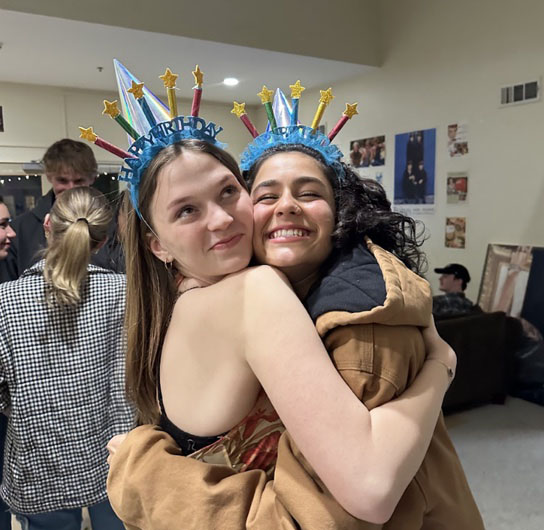Faculty Air DEI Grievances at Forum
Discussion of the University’s recently released Diversity, Equity and Inclusion (DEI) Plan sparked debate among members of the faculty at the open forum on Tuesday, Feb. 4 in Olin Hall’s Love Auditorium. Provost and Dean of the Faculty Tracey Hucks ‘87, MA’90 and Senior Advisor to the President Christopher Wells hosted the event to promote discussion and receive feedback from members of the Colgate community. Faculty members made up the majority of the dozens of people in attendance. While student presence increased from the Plan’s first forum on Nov. 12, many attendees noted the lack of student voices represented at the event.
Hucks and Wells prefaced the forum with an overview of the event’s aims, as well as feedback they had integrated since the last forum.
“We wanted to give you a sense of this feedback so that there could be kind of a generative platform for us to continue this conversation,” Hucks said.
Hucks noted a few main points of feedback, including the introduction of a Chief Diversity Officer, the role of which is currently integrated into Hucks’s position as Provost and Dean of the Faculty. Hucks also mentioned concerns about the Officer’s position in faculty governance, and how internal resources could be used to support the position and the criteria for hiring the Officer.
Hucks and Wells then opened the floor to questions, many of which raised concerns about the definitions, aims, methods and implementation of the Plan.
Professor of Philosophy George Carleton Jr. and Director for the Sophomore Residential Scholars Program David Dudrick asked a question regarding the types of diversity the Plan aims to include.
“When we’re told which aspects of identity shape perspectives and thinking, would you include beliefs [like] their religious and political beliefs?” Dudrick asked.
Dudrick went on to clarify that he meant that it seems problematic to have the definition of diversity to include such beliefs. He provided an example: most faculty would most likely not approve of a potential hire who believed abortion to be immoral.
Professor of Educational Studies John Palmer raised a hypothetical question regarding repercussions of failure to follow the Plan’s initiatives.
“Are there going to be any repercussions for defiance? [For example,] if I say, ‘Well I’m not going to follow these initiatives; I’m not going to adhere to the Diversity, Equity and Inclusion Plan,’” Palmer said.
Wells responded jokingly to Palmer’s question.
“I’d be so delighted for almost anyone but me to answer that question,” Wells said.
Hucks addressed questions of ambiguity surrounding the Plan.
“This is a working [and] living document. Something about putting it down in the written script makes it feel as though it has a finality to it, but it really does have a kind of dynamism with an understanding that this is a first pass to have something that would be a launchpad to discussion,” Hucks said.
Another student who attended the forum, sophomore Sophia Beresford, was impressed with Dean Hucks’s responses to community members’ questions but was also disappointed in the lack of student turnout at the event.
“I think Dean Hucks did an amazing job at answering questions and explaining the DEI further. One sour note of the forum however was one professor––I didn’t catch his name but he was old and white––who said quite implicitly that he didn’t see the point in diversity or in encouraging it; that was the gist of his statements. Other than that, I think it was a useful thing and I wish more students––especially white students––attended,” Beresford.
Originally scheduled for Nov. 19, the second of two planned forums discussing the DEI Plan was postponed until last week due to scheduling errors. Wells replaced University President Brian Casey in facilitating the forum after Casey came down with influenza earlier in the week.










